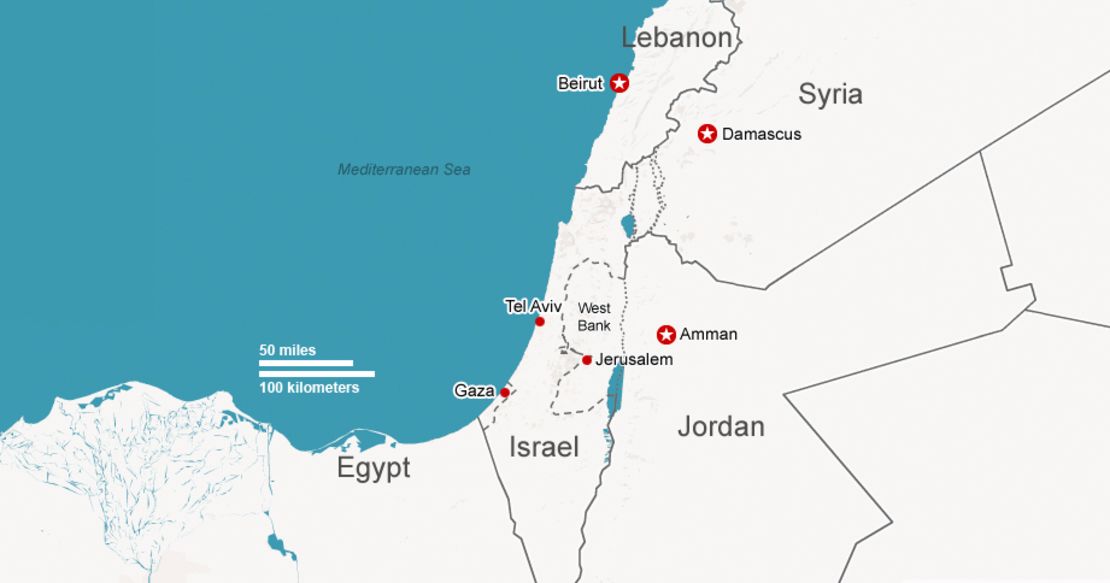Are you affected by the conflict? Share photos and video, but stay safe.
Story highlights
A poll shows many Israelis wanted the operation continued
Hamas representatives say they will meet with Egyptian intelligence
Israeli troops kill one Palestinian and wound 19, Hamas claims
The shootings occur east of Khan Yunis, the border city in Gaza, officials say
A fragile truce between Israel and Hamas appeared to hold Friday despite reports that Israeli troops shot and killed a Palestinian man near its border in Gaza.
The soldiers opened fire when farmers were trying to reach their land near Israeli-Gaza border, Hamas officials said. But the Israel Defense Forces said the people were rioters who attempted to breach a fence dividing Israel and Gaza.
It was the first report of a fatality since Hamas and Israel agreed to a cease-fire, forged by high-powered international diplomacy after eight days of round-the-clock warfare.
Egyptian President Mohamed Morsy and his government spearheaded the truce. U.N. Secretary-General Ban Ki-moon and U.S. Secretary of State Hillary Clinton also used their influence to stop the fighting. U.S. President Barack Obama dialed up the main players to help seal the cease-fire deal.
After Israel-Gaza: Who won, who lost?

It’s too soon to tell whether the latest flareup will unravel the ice-cold breather between Israel and Hamas.
Twenty-one-year-old Anwar Qandeeh died in the confrontation Friday morning, said Hamas Health Ministry spokesman Ashraf al-Qidra. Nineteen others were wounded and were taken to Nasser Hospital in Khan Yunis, al-Qidra said.
The Israel Defense Forces did not immediately confirm a casualty, telling CNN it was looking into the report.
The IDF said a group of about 300 Palestinians attempted to enter Israel at several locations along the Gaza border. The IDF maintains its soldiers acted according to the rules of engagement to distance rioters from the fence that separates Israel and Gaza.
Fighting also was recorded Thursday, a day after the cease-fire was declared. Six Palestinians were injured when they got near the border fence in the same area where the Friday violence occurred, al-Qidra said. The IDF said three rockets had been launched from Gaza into Israel. Two of the three landed in open areas, and Israel’s defense system intercepted the third. Israel also announced the arrest of West Bank Palestinians and an Arab-Israeli in connection with the bombing of a Tel Aviv bus on Wednesday in Tel Aviv.
The next stage of the cease-fire agreement would be to consider opening the border crossings to facilitate movements of people and goods.
With conflict stopped, Israeli military touts successes
Hamas representatives told CNN Friday they are going to have meetings with Egyptian intelligence to discuss the opening of border crossings and the easing of Israel’s stiff economic blockade in Gaza – strictures Israel says it put in place to keep Iranian weapons out of the hands of Gaza militants.
It remains unclear if the latest events will lead to a resumption of long-stalled negotiations on a broader peace agreement or serve simply as a respite, as has occurred in the past.
The escalation in violence between Hamas, the Palestinian movement that controls Gaza, and Israel began when the Israeli military launched an offensive designed to stop constant rocket fire from Gaza into Israel.
Israel launched the Pillar of Defense offensive, an air operation targeting Hamas military commanders and weaponry. As the Israeli military pounded Gaza, Palestinian militants continued to fire rockets into Israel, battering the southern region and reaching Israel’s two major cities – Jerusalem and Tel Aviv.
Israel’s “Iron Dome” missile defense system blocked projectiles targeting population centers, but civilians in the Jewish state and the densely populated Gaza lived in fear of attack.
Israel called up reservists and massed its forces on the Gaza border, threatening a ground invasion. But the cease-fire averted a repeat of Israel’s Operation Cast Lead offensive against Palestinian militants in late 2008, an operation that led to a bloody three-week war.
The recent fighting took its toll: More than 160 Palestinians, many of whom were civilians, were killed. Six Israelis died, including civilians and soldiers. Hundreds were wounded.
Funds are rolling in from donors such as Sweden and the OPEC Fund for International Development to help Palestinians in Gaza with emergency food and medical supplies. Donors also are contributing money to help civilians in southern Israel.
Gaza conflict leaves a ‘cruel paradox’ for Palestinians
And in Israel, many citizens registered their displeasure with the cease-fire and said the military should have continued its offensive, a poll in Israel said Friday.
Maariv, a newspaper, and Maagar Mohot Polling Institute said 49% of Israelis it polled favored continuing the operation. It said 31% agreed with accepting the cease-fire. The poll was conducted among 503 respondents. The margin of error is 4.5 percentage points. Twenty percent had no opinion.
The poll was released two months before Israeli elections.
It also showed the alliance of Likud and Yisrael Beitenu, the parties of Prime Minister Benjamin Netanyahu and Foreign Minister Avigdor Lieberman, has lost some ground, but the alliance would still maintain its ability to form a government if the election were held this week.
The poll said that the coalition partners would win 37 seats in the 120-member seat Israeli parliament, the Knesset. A poll before the offensive and cease-fire said it would win 43.
The Israeli offensive was widely popular in the Jewish state, backed by more than 90% of Israeli Jews, a Haaretz poll said on Monday. Only 30% backed a ground attack.
CNN’s Kareem Khadder reported from Jerusalem, Journalist Mohamed Fadel Fahmy reported from Cairo. CNN’s Joe Sterling reported from Atlanta. CNN’s Ben Wedeman, Chelsea J. Carter, Jill Dougherty, Sara Sidner, and Frederik Pleitgen contributed to this report












































































































































